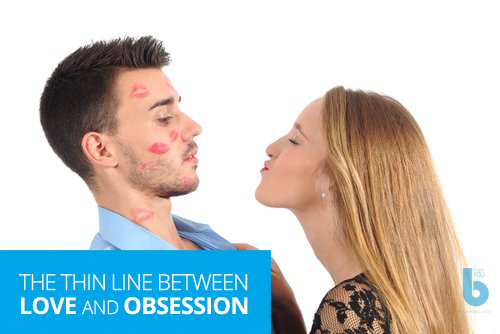Love can get a bit of a bad rap. They say it’s blind, that it can cloud your judgement, and can easily turn into obsession. Alexandra Truta takes a critical look at love and begs the question, “Have I caught a cold, or am I in love?”
Love is one of the most attractive, best-selling, as well as challenging words found in the English dictionary, yet its conflicting connotations have also helped employ it as the ‘perfect’ mental trap within society. It serves as an ambiguous justification behind the positive and negative decisions that people make, and it is the cause of both euphoria and agony when taken to extremes.
The expression “madly in love” is no joke, coincidence, or laughing matter. Love can become a form of psychological madness, namely of obsession, mania or depression. Although psychological research goes into further scientific detail on this matter, there is a very simple explanation concerning the brain’s split in between rationality (left) and love (right).
The left side of the brain is activated when we use our logic and rationality, as well as when we recount past experiences
The right side of the brain, is activated by creativity. It is highly associated with feelings, both good and bad. Here’s the trick; the right side of our brain is stimulated by both pleasure and pain and is largely unconcerned with either the past or the present. What it is concerned with is the present.
Picture a pump, which fuels either the left or the right side of our brains. The more liquid (blood) is pumped into one side, stimulating it, the less active the other side becomes.
When it comes to being in love, it’s understandable why pleasure easily becomes pain, and love easily turns into hate. They are both connected and easily activated on the same side, so the switch is fast and easy.
It is also understandable why countless people “lose their minds” (rationality) when they experience emotional intensity. When people are passionately arguing, or recklessly throwing tantrums in public places, their rational activity is so diminished in that particular moment, that they fail to realize the crowds of bystanders watching or the damage they are inflicting upon others.
Furthermore, it is easy to confuse love with hate. When we are experiencing rejection, being ignored, a breakup, or a bad fight, the right side of our brain is very active. Our increased suffering is reinforced each time, making it easier to fall into the same unhealthy behavioural patterns.
This intense feeling and the distraction which comes along with it (our inability to concentrate on our careers or anything else in our lives) can trick us into believing that it is due to ‘true love’, when in fact it has now likely turned into an obsessive- compulsive disorder (OCD).
OCD symptoms are evident in people who stalk their partners either over social media websites, such as Facebook, or physically following them.
Checking your phone or email repeatedly, calling or texting inexhaustibly, or constantly thinking about the same issue are all signs of compulsive behavior, whether mild or extreme. Mania, another diagnosed mental illness, is recognised in people with highly elevated moods. Its symptoms are recognised once one becomes so emotionally vulnerable, that a simple text or email can make them feel “butterflies in the stomach”sounds familiar?
Depression, by contrast to mania, is experienced by people whose mood and activity is rather decreased and melancholy. However, unlike diagnosed clinical depression, feelings of sadness or unhappiness come and go, and are not too serious.
Finally, here are some tips to help regain rational control once you lose it.
Count: Whether you count sheep, or you add/multiply, counting helps engage the left side of your brain, making you more focused and less emotional.
Exercise: This will help you release tension, and will help your brain release endorphins, which will make you happier and less likely to lose control.
Meditation/Hypnosis: Self-help techniques will help you to find inner peace and to be in touch with your subconscious needs. We have the capacity and tools built within each one of us, to live the life we want, with or without a partner. Love is both an overestimated,and an underestimated emotion, and our feelings can be deceptive and difficult to handle. However, if you want to experience love, and life at their best, and if you want different results, you must change the
way you think, and thus change the way in which you do things. The results will follow.




